PAST EVENTS
Wear Resistant Coatings for Aerospace and industrial Applications
February 26, 2025
The use of specialty coatings for commercial applications continues to grow as coating technologies mature, however proper implementation and application of the coatings require a high level of sophistication and diligence. Coatings can be used to prevent premature failure of tribological components or can be used to extend the service envelope in to otherwise extreme environments. Aside from choosing the appropriate coating, consideration must be given to the base material and its compatibility with the coating and the coating process. Beyond basic base material properties, the surface finish and surface cleanliness are major considerations for success. Examples of coating applications will be given where such a holistic approach yielded success.
In this presentation, we will explore some common pitfalls in wear-resistant coatings. We will discuss topics such as determining coating hardness, assessing toughness, selecting the right hard coating for various lubrication environments, and choosing the appropriate coating thickness. Along the way, we will debunk several misleading myths that even professionals can fall prey to.
Presenter: Andras Korenyi-Both
Andras (Andy) Korenyi-Both is a Senior Technical Fellow in Tribology at Woodward's Corporate Materials and Surface Engineering Group in Fort Collins, CO., where he established the company's first corporate tribology lab to enhance manufacturing decisions. A specialist in friction and wear mitigation in extreme environments, Andy's expertise spans surface engineering, surface science, and advanced techniques like PVD-CVD and XPS-AES. Previously, he founded Tribologix, providing surface engineering solutions for extreme environments, and held roles at the U.S. Air Force Research Lab, PVT GmbH, and Hohman Plating Inc., focusing on aerospace and space applications. Beginning his career at NASA Glenn Research Center, he studied Physics at the University of Richmond and pursued postgraduate work in Materials Science at Case Western Reserve University. An Affiliate Faculty at Colorado School of Mines, Andy has over 30 publications, a book, a patent and is bilingual in Hungarian, with interests in outdoor activities and motorsports.
Presenter: Yip-Wah Chung
Yip-Wah Chung, a Professor of Materials Science and Engineering and Mechanical Engineering at Northwestern University, had had a distinguished career since earning his PhD in Physics from UC Berkeley in 1977. He has served as Director of Northwestern's Center for Engineering Tribology, Department Chair and Program Officer at the US National Science Foundation. An accomplished researcher and Fellow of ASM, AVS, and STLE, Yip-Wah is recognized for his innovations, including multilayer tool coatings and nitrogenated carbon overcoats for computer disc drives. His extensive contributions include over 250 papers, 13 patents, textbooks and co-editing the six-volume Encyclopedia of Tribology. Currently, his research focuses on surface science, tribology, coatings, lubricants, and high-performance alloys. Outside of academia, he is an FAA-certified pilot and enjoys recreational flying.
Tribotesting Update
December 12, 2024
Tribology research minus the automotive IC engine
The Jost Report resulted in establishment of UK tribology centres focused on nuclear energy, steel production, and friction and wear in plant and machinery. Their primary functions completed, most of these centres have somewhat faded from view.
Automotive tribology only really took off during the 1980s, resulting in the transfer of many tribologists from academe to industry; whole departments were stripped away from universities, by companies able to pay good salaries and with large budgets to equip laboratories. Since then, the automotive internal combustion engine and associated materials, fuels, lubricants and lubricant additives, have dominated tribological research, but that era is demonstrably coming to an end. What happens when the automotive IC engine goes the same way as the steam engine or the fax machine?
At Phoenix Tribology, we have seen a dramatic shift away from our long-term dependence on customers with interests in IC engine tribology; so who are our customers now and what are the tribological problems they are hoping to address?
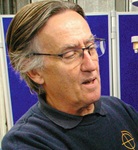 Presenter: George Plint, Phoenix Tribology Ltd.
Presenter: George Plint, Phoenix Tribology Ltd.
In 1983, Dr Michael Plint and Professor Alastair Cameron, (late of Imperial College, London) had the idea of establishing a business based on their research work in the field of tribology. I gave up a well-paid and secure job as an army engineer, to join the embryonic company, Cameron Plint Tribology Ltd, as its first Managing Director. Over the next few years, I fulfilled the combined role of design engineer, tribology researcher and sales and marketing manager.
In 1987, I took over as managing director of Plint and Partners Ltd, a company specialising in engine, transmission and production line test rigs. By the turn of the century, the market for this type of equipment was in steep decline and restructuring of the business proved necessary. Plint and Partners Ltd was wound up in 2002 and with my then business partner, David Harris, we acquired the intellectual property of company’s tribology division. The establishment of Phoenix Tribology Ltd effectively resurrected the original, independent, tribology business of Cameron-Plint Tribology Ltd.
In 2017 I was awarded the Tribology Trust Silver Medal, allegedly for a sustained contribution to the science and technology of Tribology. The Medal is award by the Tribology Trust, which is administered by the Institution of Mechanical Engineers, London. The Awards Committee comprises representatives from the Institution of Mechanical Engineers, the Institution of Engineering and Technology, the Institute of Materials, Minerals and Mining, the Royal Aeronautical Society and the UK Department for Business, Energy and Industrial Strategy.
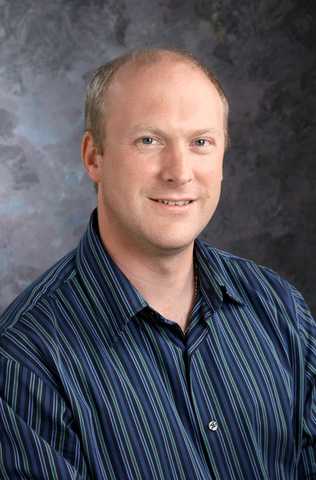 Presenters Bio: Dr. Peter Lee
Presenters Bio: Dr. Peter Lee
After leaving school, Dr. Peter Lee qualified and worked as a motor vehicle technician for four years before attending university. At the University of Leeds in the UK, he studied for an automotive engineering degree and was then asked by Shell and Infineum to study for a PhD in the field of automotive tribology. After receiving his PhD in 2006, Peter was awarded a five-year Royal Academy of Engineering Fellowship to continue his research in automotive tribology. In 2011 he moved from the UK to San Antonio, Texas, where he established the Tribology Research and Evaluations Laboratory at Southwest Research Institute (SwRI). Initially being automotive focused, the labs are now multidisciplinary and have tested for all clientele from deep sea to deep space. Peter is part of the Advanced Fluids for Electrified Vehicles Consortium recently started at SwRI.
Ensuring a sustainable chemical supply chain through the constant of change
November 11, 2024
There has been a rapid increase in globalization since the late 1970’s and especially since the turn of this century. It has enabled the chemical supply chain – and indeed all supply chains – to develop and evolve to become highly integrated and efficient, allowing the swift and economical movement of goods, services, and people across the world.
The chemical supply chain is one of the most complex in the world. It is truly global, with raw materials and finished products, including hazardous materials, moving between or through multiple countries. However, in recent years it has faced unprecedented challenges and disruption with far reaching consequences.
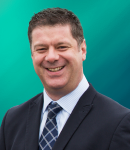 Presenter: Tim Doggett, Chemical Business Association
Presenter: Tim Doggett, Chemical Business Association
Tim Doggett, CEO of the Chemical Business Association will present on key factors and considerations, and some of the actions and initiatives being taken to ensure a sustainable chemical supply chain.
Oil Drain Levels
October 9, 2024
Oil Change Intervals: How accurate are the oil life indicators on modern vehicles? Some people still say every 3 months or 3,000 miles (regardless of what the oil life indicator says), but some oils claim 25,000 mile oil change intervals, which is much further than what the oil life indicators allow. These consumer perceptions and brand positions create a lot of confusion in the marketplace. So what does the data say? Let’s take some real world used oil analysis results and get to an answer.
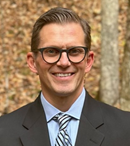 Presenter: Lake Speed Jr., Shaver Specialties Racing Engines
Presenter: Lake Speed Jr., Shaver Specialties Racing Engines
The son of a former NASCAR driver and World Karting Champion, Lake Speed Jr holds both STLE CLS and OMA 1 Certifications. While working for Joe Gibbs Racing, Lake led a development team that applied the science of Tribology to NASCAR engines and drivetrains. In the 8 seasons prior to the development program, Joe Gibbs Racing won 17 races and no championships. In the first 8 seasons of the development program, Joe Gibbs Racing won 41 races and 3 championships. Overall, the lubricants developed for JGR have enabled over 10 championships and 100 victories. Lake has spent the last 7 years working closely with Shaver Specialties Racing Engines testing engine oils, cylinder bore surface finishes and piston rings. Following the sale of Joe Gibbs Driven Racing Oil (now known as Driven Racing Oil), Lake moved to Total Seal piston rings to continue the application of Tribology for the purpose of improving engine efficiency.
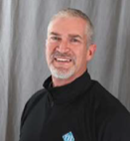
Presenter: Mark Shannon, United Oil and Grease
A fuel and lubrication sales engineer with United Oil and Grease, a division of Texas Enterprises, Inc. His expertise is in industrial lubrication with over 25 years of field experience. Prior to starting his career, he served his country as a security specialist at the USAF. Mark is a Certified Lubrication Specialist and is endorsed by STLE.
Hydraulic Fluid Trends in Industrial and Mobile Machinery
September 24, 2024
This presentation will discuss the basic properties of hydraulic fluids and how trends in fluid power technology will affect future requirements. It will include discussions of the fluid’s role in hydraulic system efficiency, reservoir downsizing, noise reduction, equipment reliability, and sustainability. Original research conducted at Milwaukee School of Engineering’s Fluid Power Institute will be presented.
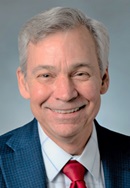 Presenter: Michael Paul, Fluid Power Institute
Presenter: Michael Paul, Fluid Power Institute
Paul Michael is the director of the Fluid Power Institute at the Milwaukee School of Engineering. He attended his first STLE Meeting in 1978 and has over 45 years of experience managing lubricant and fluid power laboratories. Paul is active in ASTM and ISO standards committees and serves as a lubrication subject matter expert for several Fortune 50 companies as well as the US Department of Defense. His publication list includes 60 papers covering dynamometer testing, pump and motor efficiency, modeling and simulation, viscosity stability, contamination control, compatibility, wear, friction, and filtration.
PFAS: Guidance on How to Deal with a Potential Health Hazard
August 21, 2024
PFAS, the acronym for per-and polyfluorinated alkyl substances, have come under regulatory scrutiny due to real and potential health & safety concerns. The purpose of this Industrial Insight program is to provide basic information on PFAS.
Included will be an update on what is known about the health & safety problems associated with exposure, what is the main source of exposure, water, regulations that have been implemented to limit PFAS exposure, and what should be done at the workplace to minimize exposure. In the latter case, attendees will be urged to check the raw materials used in their plants and work with their suppliers to make sure no PFAS containing products are being used, and request alternatives that are PFAS-free.
An update will be provided on the three main issues concerning how to deal with PFAS: detection, isolation and destruction. The presence of an estimated 15,000 PFAS in the environment makes it more difficult to understand which PFAS are hazardous. An assessment will be made that isolation techniques are significantly ahead of the other two issues making it difficult to manage PFAS contamination.
The two panelists will take time to answer attendee questions about PFAS and point out that further information will be provided in the September 2024 issue of TLT.
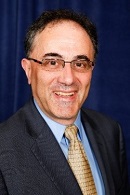 Presenter / Moderator: Dr. Neil Canter, Chemical Solutions
Presenter / Moderator: Dr. Neil Canter, Chemical Solutions
Neil Canter has been working in the lubricant industry for over 35 years. Since 1995, he has been running his own consulting company, Chemical Solutions which specializes in commercial development, marketing, product development, and regulatory support for the lubricant industry. Canter is the STLE Tech Advisor and author of the 4th STLE Emerging Issues and Trends Report. He is responsible for writing the monthly Tech Beat column in STLE’s TLT magazine. Canter is a member of the STLE Education Committee, STLE Metalworking Education & Training Committee and Program Chair for the STLE Philadelphia Section. He is a past member of the STLE Board of Directors.
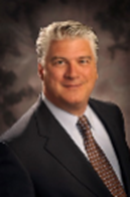 Chuck Meek
Chuck Meek
Chuck Meek is the Executive Director of Solve for X Impact Corporation, a nonprofit that supports and funds environmental technology innovation.
He is also the Managing Director of Solve for X, L3C, a Research & Development platform that integrates Philanthropic, Private Capital, Academic, and Industrial enterprises. The firm accepts private foundation grants and impact investment funds, and manages Program Related Investments in environmental technology.
He is a vocal advocate for environmental stewardship, especially for fresh water ecosystems, and has led collaborative contract research initiatives on multiple topics, including:
- Economic Impacts of Emerging Contaminants on Industry - Case Study in Environmental Insurance
- Economic Impacts of Emerging Contaminants on Brownfield Real Estate Redevelopment
- Economic Impacts of Emerging Contaminants on Municipal Bio-Solids Disposal Models
- Scalable Water Purification System using Electrophysics, Integrated Ionization & Magnetic Separation
- Rapid In-situ PFAS Detection/Measurement and Data Diagnostics Using GC/MS/MS
Chuck is an Industry Advisor at The University of Chicago – Pritzker School of Molecular Engineering. His role there is to mentor post-graduate researchers and post-doctorate scientists, helping them reframe their esoteric theses and dissertations in terms and language of private capital and industry audiences.
He splits his time between Traverse City, MI and Aix-en-Provence, France.
Taming Friction: The Potential of Ionic Liquids in Tribology
July 11, 2024
Ionic liquids (ILs) have gained considerable attention owing to their unique and tunable physico-chemical properties (e.g., low vapor pressure, high thermal stability, low flammability, good ionic conductivity, wide electrochemical stability window), which have made them useful for a range of applications, including energy storage, catalysis, and chemical processing. ILs are particularly attractive in lubrication, since their properties make them suitable for reducing friction and/or wear in a variety of applications, such as automotive, manufacturing, aerospace, and semiconductor devices
In this talk, I will provide an overview of the potential use of ILs in tribology with a particular focus on their promising properties when used in the boundary lubrication regime, i.e., when applied loads are too high and sliding speeds are too low for a full fluid film to be maintained. Under these conditions, the interfacial structure and properties of ILs start to deviate from the ones in their bulk phase. Specifically, the strong spatial confinement of ILs between sliding surfaces promotes the interaction between the IL molecules and the confining surfaces as well as between the functional groups within the ions. These strong interactions under confinement affect the behaviors of the ILs in terms of phase transition, ion mobility, and chemical reactivity. As the properties and dynamic evolution of IL/solid interfaces under tribological applications play a critical role in determining the lubrication performance in the boundary lubrication regime, I will discuss in detail the current state-of-the-art concerning the interfacial phenomena occurring between IL and solid materials under confinement using the results of our research group as particular example. I will then highlight the emerging knowledge on the interrelationship between the molecular structure of ILs and their behavior at sliding interfaces.
Finally, I will discuss the potential application of ILs in future technologies enabled by research efforts aiming to overcome three major challenges for ILs, namely their sensitivity to ambient moisture, corrosivity and toxicity, and high-cost.
 Presented by Dr. Filippo Mangolini, University of Texas, Austin
Presented by Dr. Filippo Mangolini, University of Texas, Austin
Dr. Filippo Mangolini earned his Ph.D. in Materials Science at the Swiss Federal Institute of Technology (ETH Zurich, Zurich, Switzerland) in 2011, after graduating from Polytechnic University of Milan (Milan, Italy) in Materials Engineering with the highest honor in 2006. Upon completion of his Ph.D. in 2011, Dr. Mangolini performed postdoctoral research at the University of Pennsylvania and then at Ecole Centrale de Lyon (Lyon, France). His postdoctoral research was supported by the European Union through a Marie Curie International Outgoing Fellowship and by the Swiss National Science Foundation (SNSF) through an SNSF Postdoctoral Fellowship. After two years at the University of Leeds (Leeds, UK) as a University Academic Fellow and Marie Curie Fellow, Dr. Mangolini joined the faculty of the Walker Department of Mechanical Engineering at The University of Texas at Austin in Spring 2018 as an Assistant Professor in Materials Science and Engineering. He was recently promoted to Associate Professor with Tenure (effective in August 2024).
Dr. Mangolini has received a number of international and national awards and honors for outstanding research and teaching achievements, including the 2022 American Society of Mechanical Engineers (ASME) Burt L. Newkirk Award, 2021 NSF CAREER Award, 2021 Society of Tribologists and Lubrication Engineers (STLE) Early Career Award, 2020 Dean’s Award for Outstanding Engineering Teaching by an Assistant Professor, 2020 Teaching award from the Walker Department of Mechanical Engineering, 2018 Ralph E. Powe Junior Faculty Enhancement Award, and the 2016 Mazzucotelli Award from the Italian Chemical Society.
June 11, 2024
Artificial Intelligence - Integrating AI and Machine Learning with Oil Analysis Data
In an era marked by fast technological developments, the oil analysis & lubrication industry stands at the cliff of transformation. The merging of oil analysis and Industry 4.0 technologies promises to revolutionize traditional practices and redefine the future landscape of the industrial sector. This presentation will explore into the deep implications of this merging, shedding light on the opportunities and challenges it presents.
Industry 4.0, characterized by the integration of cyber-physical systems, the Internet of Things (IoT), and artificial intelligence (AI), has already begun to reshape various sectors and industries, and the oil analysis sector is no exception. The combination of these cutting-edge technologies with oil analysis methodologies holds immense potential for enhancing operational efficiency, real predictive maintenance, and overall asset management.
 Presenter: Jorge Alacron, Pragma Reliability
Presenter: Jorge Alacron, Pragma Reliability
BEng Industrial, MSc Condition Monitoring, MSc Big Data & Business Intelligence, MSc RAMS, MBA, PhD candidate.
Global Reliability Manager, Condition Monitoring Engineer, Researcher, and Consultant in Condition Monitoring and Predictive Maintenance in the power generation, manufacturing and wind energy industries, among others.
Extensive knowledge of the Predictive Maintenance markets of Europe and the Americas, full customer technical support, focused on improving plant reliability through oil condition monitoring, lubrication best practices, and digital transformation strategies.
May 14, 2024
Technology Evolution in the Transportation Industry and the Need for Enhanced Testing
Continuous evolving electrified systems within the transportation industry have occurred at an accelerated pace. Aerospace and automotive manufacturers are tasked to significantly reduce carbon emissions. Various designs that are being developed have both strengths and weaknesses. Proper lubrication and cooling have been key to ensure the proper performance of any vehicle. High-speed electric vehicle systems are performing with electrified system, causing significant wear and pitting conditions. In some designs, the electric motor and its corresponding electronics are in contact with lubricant or its ensuing vapor. This raises concerns regarding copper corrosion and the potential formation of conductive deposits on critical parts. Other areas require immense cooling systems that have a propensity to cause other potential failures. There are hybrid systems that incorporate both technologies, but some are attempting single source coolant and lubrications systems.
In this presentation, we will review tools that are available or being developed to evaluate lubricant performance. Subsequent shortcomings to access lubricant suitability for electrified drivetrains will also be demonstrated. Various versions of test methods are already in use within the automotive industry, but some of these tests are not standardized or widely available. We will discuss the collaborative efforts to standardize these test methods and make them widely available.
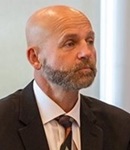 Presenter: Greg Miiller, The Savant Group
Greg Miiller has worked at an international level for the petrochemical industry over the past 28 years. With both scientific and advanced business degrees, his career progressed from engineer to Vice President of New Business and Engineering for The Savant Group. Part of that experience was enhancing the cost savings through design, process improvement and lean production methodology.
Presenter: Greg Miiller, The Savant Group
Greg Miiller has worked at an international level for the petrochemical industry over the past 28 years. With both scientific and advanced business degrees, his career progressed from engineer to Vice President of New Business and Engineering for The Savant Group. Part of that experience was enhancing the cost savings through design, process improvement and lean production methodology.
Greg has been co-awarded 18 patents for designs on testing equipment and authored many technical papers. He is currently the 2nd vice chair of ASTM D02 and actively serves as an officer with Standards Development Organizations such as The Energy Institute, the Coordinating European Council and the Society of Automotive Engineers (SAE). In 2019, Greg formed the Global Lubricants Test Standards Team that provides a communication link between specification setting organizations, standards development organizations and trade organizations from around the world.
His background in quality assurance, “5S” and “5Y”, risk analysis, ISO 90001/17025 and customer satisfaction narratives have been instrumental in his growth as a company entrepreneur. Greg is the founder or co-owner of four other companies within the United States.
April 23, 2024
Trending Concepts in Biolubricants - My Experience
As customer needs have evolved, so has the need for new base oil technologies and additives. In this presentation Dr. Beaver will discuss his experiences with customers, technology, and regulatory drivers that are sometimes encouraging, and often downright forcing development and adoption of biolubricants. He will cover the primary considerations when formulating biolubricants and review the many challenges faced by the industry including base oil and additive supply, product stability, OEM approvals, and customer education. He will also discuss his experiences presenting biolubricants in a market that often does not understand the technology, the applications, the value, or the limitations of the various technologies being offered.
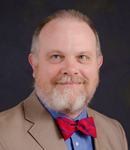 Presenter: Larry Beaver, RSC Bio Solutions, LLC
Presenter: Larry Beaver, RSC Bio Solutions, LLC
Dr. Larry Beaver has been in the lubricant industry for twenty-four years, first in the field of conventional lubricants and now for the past seven years focused on “biolubricants” development for a variety of markets served by RSC Bio Solutions.